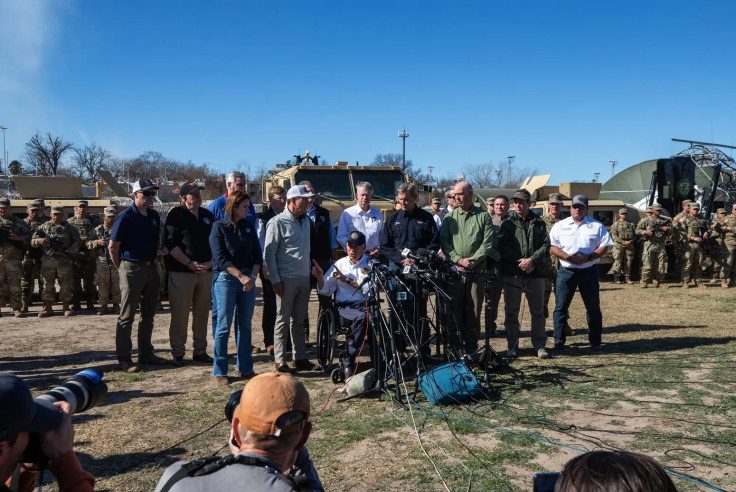
The Texas law, known as SB4, allowing state authorities to arrest and potentially deport migrants who cross the border unlawfully could potentially go into effect on Monday after several weeks of judicial back-and-forth.
Supreme Court Justice Samuel Alito granted a stay on the case following a lawsuit filed by the Justice Department, which argues the state is overstepping on its attributions as the federal government has the sole power to dictate migratory policies.
However, the stay ends on Monday at 5 p.m. ET, meaning the law could go into effect if no decision to extend it or to take down the law happen by then.
A federal judge in the state had blocked the law, siding with the arguments from the Justice department, but the 5th U.S. Court of Appeals rejected the ruling and sided with the Greg Abbott administration. The court is set to hear arguments on the merits of the law on April 3.
But if the stay is not extended throughout the day, the law could go into effect, allowing state authorities to start enforcing the law in the state. They would be able to identify, apprehend, and prosecute people under suspicion of having entered the country without authorization.
In addition, it classifies these illegal crossings as a Class B misdemeanor that carries a penalty of up to six months in jail. Migrants who don't leave and are arrested again could face more serious charges.
Officers conducting arrest must have probable cause, the law says, including witness the illegal entry or seeing it on video. It can be enforced all over the state, but Republican state Representative David Spiller, who wrote the law, said he expects most arrests to take place within 50 miles of the southern border. All people apprehended would be sent to ports of entry along the southern border, even if they are not Mexican citizens.
According to an analysis by The Associated Press, arrests cannot be made in certain places, including "public and private schools; places of worship; or hospitals and other health care facilities, among them those where sexual assault forensic examinations are conducted."
The Department of Justice told the Supreme Court that the law would alter "the status quo that has existed between the United States and the States in the context of immigration for almost 150 years." It also said immigration is an issue that falls solely within the authority of the federal government. And, on a separate note, that the law would have "significant and immediate adverse effects" on the country's relationship with Mexico.
In fact, Mexican President Andrés Manuel López Obrador (commonly known as AMLO) openly criticized the program, saying it could lead to racial profiling and family separations.

This is not the only immigration-related clash between the Biden and Abbott administrations. They are also at odds on the installing of razor wire fences throughout Texas, and even though the former got a Supreme Court ruling allowing it to cut it down, Texas' National Guard have continued installing more.
Some 140,000 migrants were apprehended when trying to cross the U.S. southern border in February, according to Border Patrol figures.
The number is still much lower than the 302,000 recorded in December, but higher than January's 124,000, as reported by CBS News. And authorities are expecting crossings to spike again as spring approaches in the Northern Hemisphere, a period when flows have historically increased.
© 2024 Latin Times. All rights reserved. Do not reproduce without permission.







